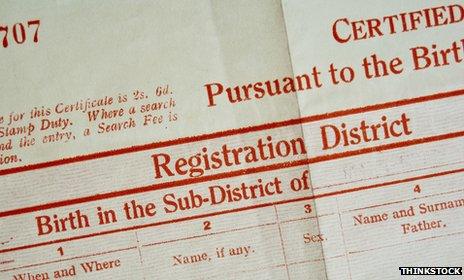Are you more likely to die on your birthday?
- Published

A study by Swiss researchers has generated a startling statistic - you are 14% more likely to die on your birthday than on any other day of the year. But why should that be?
As the researchers put it, "birthdays… <link> <caption>appear to end up in a lethal way more frequently than expected</caption> <url href="http://www.annalsofepidemiology.org/article/S1047-2797(12)00110-X/abstract" platform="highweb"/> </link> ."
This is not a joke. The study was carried out by legitimate scientists who analysed data from 2.5 million deaths in Switzerland between 1969 and 2008.
There are a number of hypotheses which may explain the finding.
Perhaps some people close to death "hang on" until their birthday, to reach another milestone? Or perhaps a significant number of people take greater risks on their birthdays, like driving home from their own parties drunk?
But Professor David Spiegelhalter, a statistician from Cambridge University, says the Swiss data does not support the "hanging on" theory.
"They don't find any dip before so there's no holding on," he says, "and they don't find any blip after, so there's no jumping the gun. It's purely a birthday effect."
The Swiss data, he says, suggests "something on your birthday kills you".
The University of Zurich's Dr Vladeta Ajdacic-Gross, who led the study, says the data on birthday deaths shows the risk of death is greater for certain causes, like accidents and suicide.
But Spiegelhalter sees no evidence for this. As far as he is concerned, the data "is compatible with a uniform 14% blip on all causes, all ages, both sexes". So he offers an alternative hypothesis - that some of the death registration records used by the researchers were simply inaccurate.

When birth and death dates match, it may sometimes be a mistake...
"This is a very big study. There are 2.5 million deaths they've looked at," he says.
"But if we actually look at what the excess is, it's 900 deaths in which people have been registered to have the same birth date as death date. That's not that many out of 2.5 million.
"Now maybe I'm getting sceptical in my old age but this is only to do with matching registrations. The Swiss are, I'm sure, very precise book-keepers. But it's possible that someone could have a matching birth date and death date in their record when that wasn't actually the case."
One can imagine how such an error might occur. What if the birth date of a deceased person was unknown? Someone might use their death date as the birth date too, just to fill the box. Then there's pure accident - someone in a hurry might write the same date in both boxes by mistake.
If such mistakes occurred in just 0.04% of death records, the entire effect could be explained away.

Might people be holding out for a milestone birthday?
"I'm not saying that's what happened," says Spiegelhalter. "But for me to be convinced about this frankly rather implausible finding, I'd want to see [the researchers] go back to every single match and double-check."
Ajdacic-Gross concedes that administrative errors could be to blame for some of the spike in deaths on birthdays.
If you take a "worst-case scenario" for the frequency of errors in the death registration system, he says, the excess risk of dying on your birthday drops to around 4%. This, he argues, is still a significant result.
And despite Spiegelhalter's concerns about this particular study, there is some evidence that people close to death can have some influence over the date of their departure.
The economists Joshua Gans and Andrew Leigh published a paper in 2006 which examined the effect on death rates of a change in Australian tax law.
In 1978 the Australian government decided to abolish estate taxes - or inheritance tax. The estates of anyone who died on or after 1 July 1979 would escape tax. The estates of anyone who died before that date would not. The data suggests a significant number of deaths were "postponed" long enough to avoid paying tax.
If the very ill are able to move their date of death forwards as well as backwards, says Joshua Gans, "any country that introduces an inheritance tax should expect a spike in the death rate in the week before the law takes effect."
Readers will have to decide for themselves how to interpret these studies. But this journalist won't lose too much sleep when his next birthday rolls around.